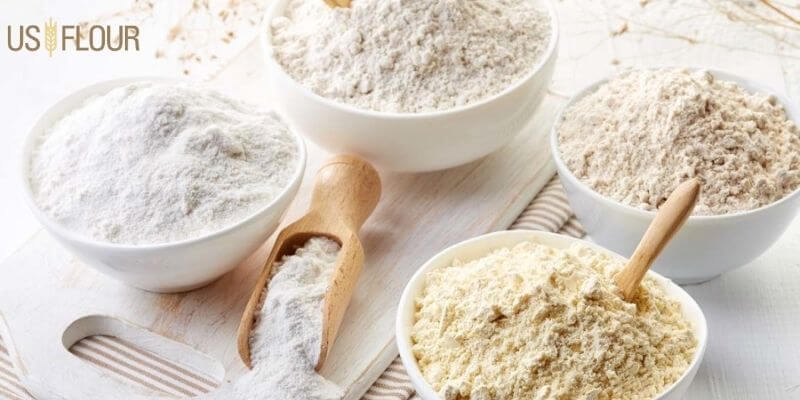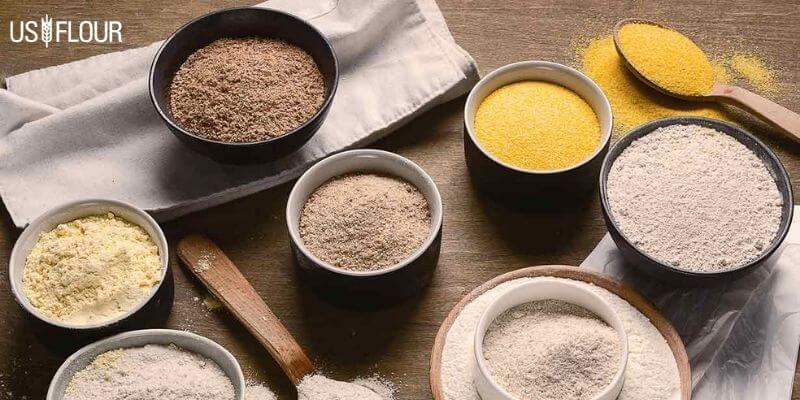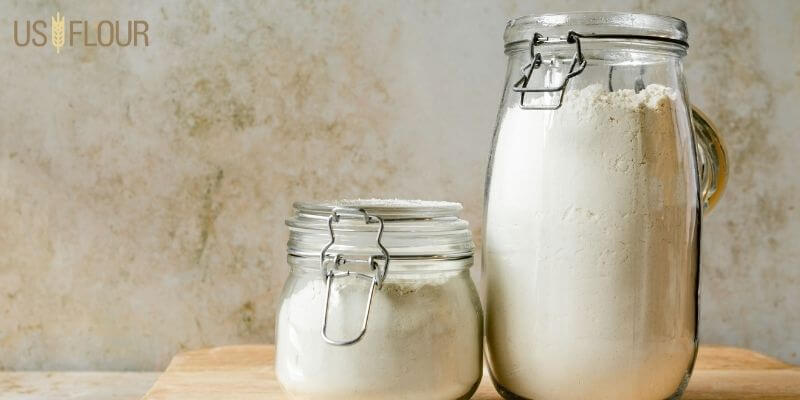Does Flour Go Bad – How Long Will It Last?

Flour is a staple food component available in all the kitchens. Whether it is a pantry in a restaurant or a cafe, food items baked with flour capture the attention of the customers.
Flour is prepared by milling from the whole grains. Different grains are applicable in grinding a wide range of flour. In the market, you can get whole wheat flour, all-purpose, cake, pastry, self-rising, and many others. Every flour will exhibit a different property. Due to these properties, you can use the flour for a wide range of purposes.
It is simple that you would be buying flour in bulk to meet the daily requirements of your family. To buy flour in smaller quantities does not seem feasible. You need to run to the store every week to get the stock. Therefore, people prefer to buy flour in bulk.
Although, it is beneficial to buy flours in bulk. But you need to store it with full precaution. Storing is an essential factor that will define the shelf life of the flour. If not fail to store the flour properly, it will turn rancid within a few months. It will develop a bad smell, and critters start feeding. You cannot use such flour that is rancid and has a bad smell. It can happen even before the expiry date of the flour. Therefore, experts recommend keeping the flour in a safe place.
If the storage is perfect, you can keep the flour fresh even after the expiry date.
Does Flour Go Bad?
It is a commonly asked question. People across the globe usually worry about the shelf life of the flour. A simple answer to this is yes. Flour does get worse if you are not storing it properly. Exposure to heat and light can turn the flour rancid. Moreover, the flour will ooze out the natural oils that can attract the critters.
How Long Does The Flour Last?
People keep asking this question over and over again. While you buy flour in bulk, it is essential to know how long the flour will last. According to a survey, it is stated that flour stays fresh for 6 to 7 months after the milling. But if you store it well, the flour can last for more than eight months. Besides this estimation, you must check the expiry date on the flour packet you get from the store. There are several factors that impact the shelf life of the flour.
Let us know more about the factors.
1. Type Of Flour:

One of the crucial things that define the shelf life of the flour is its type. You can find various four types in the market. Coconut flour, almond flour, all-purpose flour, cake flour, gluten-free flour, self-rising and more. Each one will have different properties The flour that contains a high amount of natural oils tends to have a smaller shelf life. They cannot last for more than 2 to 3 months. Even if you store it with full precaution, it will not last long. Besides, other flours can last for six months.
2. Storing Methods:

For every flour, you need to follow generic and specific storing instructions.
- Some of the generic instructions include:
- Keeping the flour in air-tight containers.
- Store the containers in the pantry of cold storage.
- The containers should not come in contact with heat and sunlight.
- Ensure that flour is not coming in contact with air or moisture.
You have to follow these storage instructions for all the flour. Apart from this, you can use specific storing instructions based on flour type.
3. From Where You Get The Flour:
People have their own preferences when it comes to buying flour in bulk. Some people get it from the millers, bulk bins, or flour packets. When you get it from miller,s you can ensure high quality and freshness. It is because the millers use fresh stock to meet daily customer requirements. Such flour has longer shelf life compared to flours in packets. Besides this, you can get flour from bulk bins. The bulk bins get restocked after every two to three hours.
Now, you have understood the factors that provide an answer to how long the flour lasts.
Summary:
Proper storage for flour is always important. If you do not know the storing methods, it will destroy the flour within a short span of time. Every flour has different sorting preferences. So, be careful when you plan the storage for the flour.
 Power to The Bakers.
Power to The Bakers.